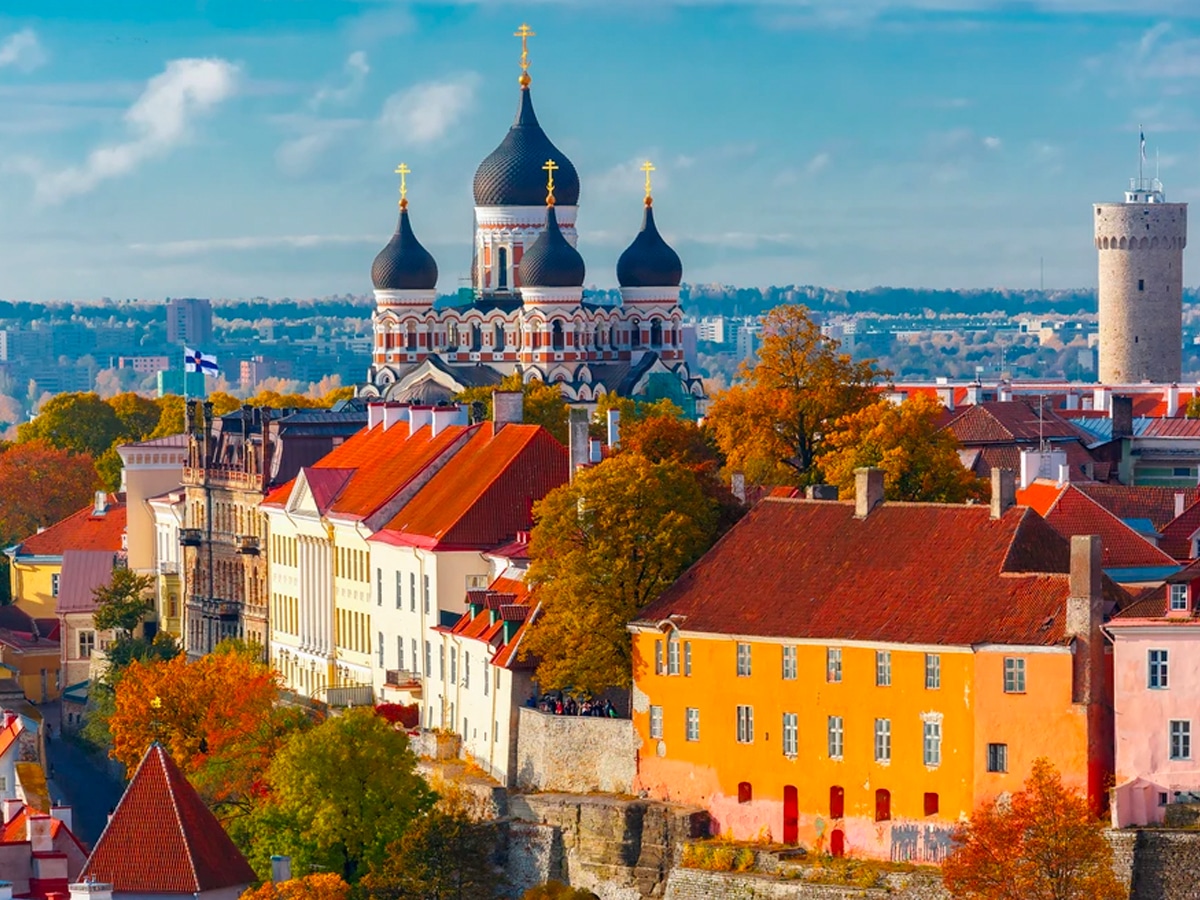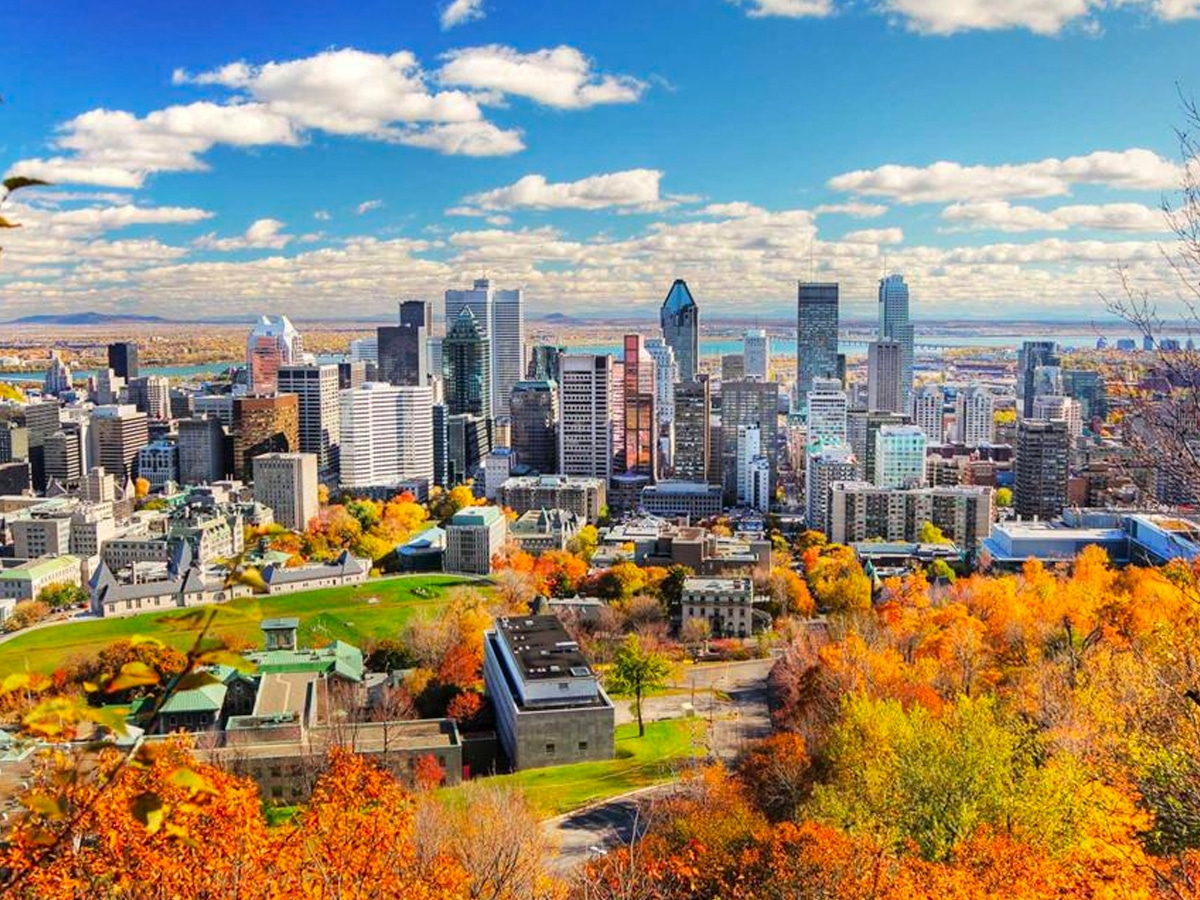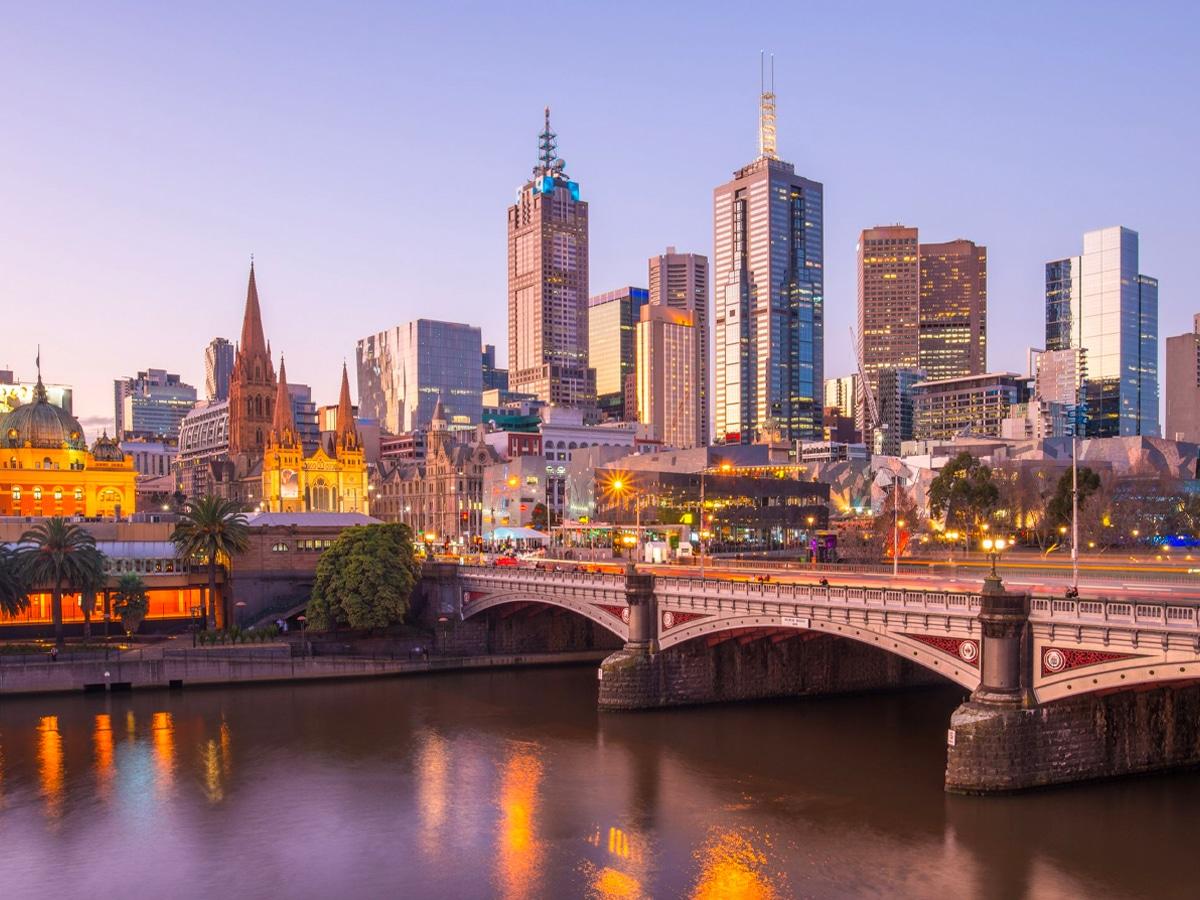
Published:
Readtime: 9 min
Every product is carefully selected by our editors and experts. If you buy from a link, we may earn a commission. Learn more. For more information on how we test products, click here.
Working from home has become the new norm, but some countries are far more equipped to deal with the evolution than others. A new report from global property database Nestpick has revealed that Australia is among the world leaders in remote working conditions, providing domestic workers with all the tools needed to work from home. In fact, Melbourne, a city that bore the vast majority of the COVID-related brunt has been named the best city in the world for remote work, with Sydney hot on its tail. The new Work-From-Anywhere Index reveals a city’s capacity for remote work, a rapidly developing necessity for a world slowly emerging from a pandemic.
RELAED: Facebook Launches Horizon Workrooms VR Meeting Tool

Work-From-Anywhere Index
Even before the pandemic, the global workplace was rapidly advancing. Improvements to technology and digital connectivity allowed more businesses to offer working from home arrangements, a movement that was also spurred by positive mental health studies. Despite this, few countries enacted legislation that allowed foreign-employed workers to take residence. Instead, they only offered visas to those who take jobs on location, missing out on bringing high-wage earners to their cities without the need to generate new jobs. However, the global pandemic accelerated market movement.
In response to dwindling tourist revenue, countries across the globe lowered the barrier for immigration. Former holiday destinations such as Sicily offer relaxed Visa conditions for those moving to the region to work remotely, a trend that has slowly developed.
“The last year has really proved to many companies that remote-working is not only a possibility, but actually something that can be beneficial to everyone involved. The technology has been available for a while now, but it’s taken seeing it in practice for the idea to really take hold,” comments Omer Kucukdere, founder and CEO at Nestpick.
Criteria
It does raise the question, what is the best place to work remotely? According to Nestpick, it’s right here in Australia. The organisation created the Work-From-Anywhere Index which investigates which cities are the most attractive and welcoming to foreigners, and which have the infrastructure and legislation in place to make it easy for remote employees to live and work there. The new Work-From-Anywhere Index judges a city’s capacity for remote work based on a series of key criteria. Taking into account:
- Home Office Room Rent (EUR)
- Accommodation Availability (Score)
- Income Tax, incl. Social Contributions (5)
- Internet Speed & Capacity (Score)
- Remote Worker Immigration
- Remote Working Infrastructure (Score)
- Safety, Freedom & Rights (Score)
- Gender Equality (Score)
- LGBT+ Equality (Score)
- Minority Equality (Score)
- COVID-19 Vaccination Rate (%)
- Cost of Living (Score)
- Healthcare (Score)
- Culture & Leisure (Score)
- Weather (Score)
- Pollution – Air, Light, Noise (Score)
“For the first category, we looked into the basic costs and set-up requirements needed to work comfortably with minimal extra expense, such as the price and availability of adequate home office space and the speed and capacity of the internet in each location,” Nestpick explained.
The second category appraised the ease to which a foreigner was able to work remotely in each location, special visas and specific remote-working infrastructure such as tax deductions and regulation. Further analysis of access to culture and leisure events both before and during the pandemic, as well as the general weather and levels of air, noise and light pollution also played a role Finally, since the Covid-19 pandemic continues to impact the livability of many metropolises, Nestpick took note of the percentage of the populations that are fully vaccinated in each location, as well as those that had low infection rates.
Best Cities for Remote Work
With the expansive judging complete, Nestpick identified the top-rating cities for remote work in the world. Judging on the above categories, Nestpick used the data to provide a total score, ranging from 1-100 for the top 75 cities. Here is a list of the best cities for working from home.

1. Melbourne, Australia (100)
Australia’s cultural capital, Melbourne has been crowned the best place in the world for remote work. The Victorian city fared well in the home office room rent affordability stakes, with extremely high scores in the remote working infrastructure stakes. Throw in the city’s impressive cultural calendar and it makes sense why Melbourne performed as well as it did. The only downsides here were the low vaccination rates and sub-par internet speeds.
Area: 9,992 km²
Elevation: 31 m
Population: 5.078 million (2019)

2. Dubai, UAE (96.64)
With no income tax, it’s hard not to see the upside of remote working in Dubai. Despite a relatively high rental rate, the cost of living is surprisingly low and vaccination rates are high. The country also offers a digital nomad visa, meaning you have more freedom to work remotely from Dubai.
Founded: 9 June 1833
Area: 4,114 km²
Population: 3.331 million (2019)

3. Sydney, Australia (92.62)
Australia’s jewel in the tourism crown has been rocked by the pandemic, however, the city’s transition to remote work has been impressive. Despite a high cost of living and rent affordability making things challenging, Sydney is extremely safe, has positive remote working infrastructure and scored well in the equality stakes. Once again, internet speeds let us down here.
Area: 12,368 km²
Population: 5.312 million (2019)
Founded: 1788

4. Tallinn, Estonia (88.11)
A city you may not have heard of, Tallinn is an ideal place for working from home. The country of Estonia offers a digital nomad visa and is one of the most affordable in Europe. The cost of living is extremely low, internet speeds are high and accommodation is readily available. According to Nestpick’s Work-From-Anywhere Index, Tallinn was also one of the most inclusive cities listed, with perpetually high rankings in the equality stakes.
Area: 159.3 km²
Elevation: 9 m
Population: 426,538 (2017)

5. London, UK (87.18)
It’s no secret that London is a city fraught with digital workers, but how does it stack up against the world’s best remote working environments? According to Nestpick, London’s approach to legislation, freedoms and remote working infrastructure make in an ideal location to base your work. Unfortunately, the high rental rates and cost of living let the British icon down with Home Office Rate sitting at around EUR1,281.
Area: 1,572 km²
Elevation: 11 m
Population: 8.982 million (2019)

6. Tokyo, Japan (86.81)
The Olympics host city is also one of the most liveable for remote workers. Similar to Tallin, Tokyo nailed gender, minority and LGBT+ equality, making it an ultra-inclusive working environment. Similar to some of the other global cities on the list, Tokyo lost points in terms of Home Office Rent, however, its biggest downfall was in vaccination rates. Remarkably, the city has less than 10 per cent of its total population vaccinated, lagging behind cities in Colombia, San Jose and even Australia.
Area: 2,194 km²
Population: 13.96 million (2021)
Capital: Shinjuku City
Governor: Yuriko Koike

7. Singapore, Singapore (85.5)
The most expensive city on the list for Home office Rent, the Singapore capital is pricey, but still worthy of note. The city ranked extremely high in terms of accommodation availability at 86.30, with remote working infrastructure sitting at an impressive 95.60. As expected, Singapore also scored well in terms of healthcare, however, the high cost of living pushed the city down the list.
Currency: Singapore dollar Trending
Dialling code: +65
Area: 728.6 km²
Population: 5.704 million (2019)

8. Glasgow, UK (84.74)
Highly affordable with home office rent sitting at around EUR564, Scottish city Glasgow offers remote workers a number of key perks. The city is home to a highly-developed remote working infrastructure and scored a near-perfect 97.4 on the safety, freedoms and rights ranking.
Area: 15 km²
Population: 598,830 (2011)
Area code: 0141
Metro population: 1,861,315

9. Montreal, Canada (84.07)
Another highly affordable city, Montreal in Canada is well equipped for remote work. Rent rates are low and cost of living is relatively affordable, however, the high taxation rate does make things slightly more challenging. Additionally, Montreal does not offer a digital nomad visa, adding another barrier to entry for those working from home.
Area: 431.5 km²
Population: 1.78 million (2017) United Nations
Province: Quebec
Metro population: 4,247,000 (2nd)

10. Berlin, Germany (82.88)
The start-up capital of Germany, Berlin has quickly become a major base for remote workers. The city scored well in terms of legislation and freedoms, with much of the infrastructure required for remote already established. Where the German city faltered, however, was in taxation. The high tax rate of 39.98% is tough to swallow and while it does offer a freelancer visa, there is no digital nomad visa on offer.
Area: 891.8 km²
Population: 3.645 million (2019) Eurostat
Founded: 1237
Mayor: Michael Müller
Work-From-Anywhere Index Full List
| # | City | Country | Total |
|---|---|---|---|
| 1 | Melbourne | Australia | 100 |
| 2 | Dubai | UAE | 96.64 |
| 3 | Sydney | Australia | 92.62 |
| 4 | Tallinn | Estonia | 88.11 |
| 5 | London | UK | 87.18 |
| 6 | Tokyo | Japan | 86.81 |
| 7 | Singapore | Singapore | 85.5 |
| 8 | Glasgow | UK | 84.74 |
| 9 | Montreal | Canada | 84.07 |
| 10 | Berlin | Germany | 82.88 |
| 11 | Prague | Czechia | 82.61 |
| 12 | Toronto | Canada | 82.41 |
| 13 | Chicago | USA | 82.32 |
| 14 | Hong Kong | Hong Kong | 81.26 |
| 15 | Lisbon | Portugal | 81.16 |
| 16 | Cape Town | South Africa | 80.93 |
| 17 | Edinburgh | UK | 80.72 |
| 18 | Vienna | Austria | 80.11 |
| 19 | Los Angeles | USA | 79.88 |
| 20 | New York | USA | 79.4 |
| 21 | Madrid | Spain | 79.17 |
| 22 | Miami | USA | 78.59 |
| 23 | Reykjavik | Iceland | 78.39 |
| 24 | Seattle | USA | 78.05 |
| 25 | San Francisco | USA | 78.02 |
| 26 | Tampa | USA | 77.38 |
| 27 | Austin | USA | 77.12 |
| 28 | Saint Petersburg | Russia | 77.06 |
| 29 | Barcelona | Spain | 77 |
| 30 | Houston | USA | 76.93 |
| 31 | Athens | Greece | 76.93 |
| 32 | Dublin | Ireland | 76.91 |
| 33 | Buenos Aires | Argentina | 76.88 |
| 34 | Chiang Mai | Thailand | 76.39 |
| 35 | Indianapolis | USA | 76.11 |
| 36 | Paris | France | 75.98 |
| 37 | Auckland | New Zealand | 75.94 |
| 38 | Pittsburgh | USA | 75.52 |
| 39 | Vancouver | Canada | 75.44 |
| 40 | Munich | Germany | 75.04 |
| 41 | Nashville | USA | 74.93 |
| 42 | Bern | Switzerland | 74.87 |
| 43 | Zagreb | Croatia | 74.31 |
| 44 | San Jose | Costa Rica | 73.73 |
| 45 | Boston | USA | 73.68 |
| 46 | New Orleans | USA | 73.51 |
| 47 | Portland | USA | 73.09 |
| 48 | Denver | USA | 73.01 |
| 49 | Hamburg | Germany | 72.59 |
| 50 | Dallas | USA | 72.33 |
| 51 | Phoenix | USA | 72.01 |
| 52 | Budapest | Hungary | 71.76 |
| 53 | Helsinki | Finland | 71.54 |
| 54 | Rio de Janeiro | Brazil | 70.95 |
| 55 | Atlanta | USA | 70.6 |
| 56 | Bali | Indonesia | 70.56 |
| 57 | Cologne | Germany | 70.25 |
| 58 | Honolulu | USA | 69.68 |
| 59 | Bangkok | Thailand | 69.15 |
| 60 | Frankfurt | Germany | 69.13 |
| 61 | Toulouse | France | 68.96 |
| 62 | Rome | Italy | 68.86 |
| 63 | Las Palmas | Spain | 68.8 |
| 64 | Warsaw | Poland | 68.48 |
| 65 | Amsterdam | Netherlands | 68.45 |
| 66 | Mexico City | Mexico | 68.21 |
| 67 | Stockholm | Sweden | 67.73 |
| 68 | Nantes | France | 67.67 |
| 69 | Bari | Italy | 67.55 |
| 70 | Copenhagen | Denmark | 66.2 |
| 71 | Istanbul | Turkey | 64.03 |
| 72 | Brussels | Belgium | 63.18 |
| 73 | Shanghai | China | 59.38 |
| 74 | Marrakesh | Morocco | 55.85 |
| 75 | Medellin | Colombia | 50 |
General FAQs
According to global property databse Nestpick, the city of Melbourne, Australia is the best place in the world for remote work. The title was claimed after the organisation release the Work-From-Anywhere Index, a report that assesses a city’s safety, culture, affordability and capacity for remote work.
Digital nomad visas are travel permits that legalise the status of travelling professionals. Like tourist visas, they are easy to obtain and do not require long paperwork and a work contract. However, they allow for longer stays.
A recent addition, countries such as Australia, the UAE, Italy, Estonia, Portugal and Iceland offer a digital nomad visa for remote workers.































Comments
We love hearing from you. or to leave a comment.